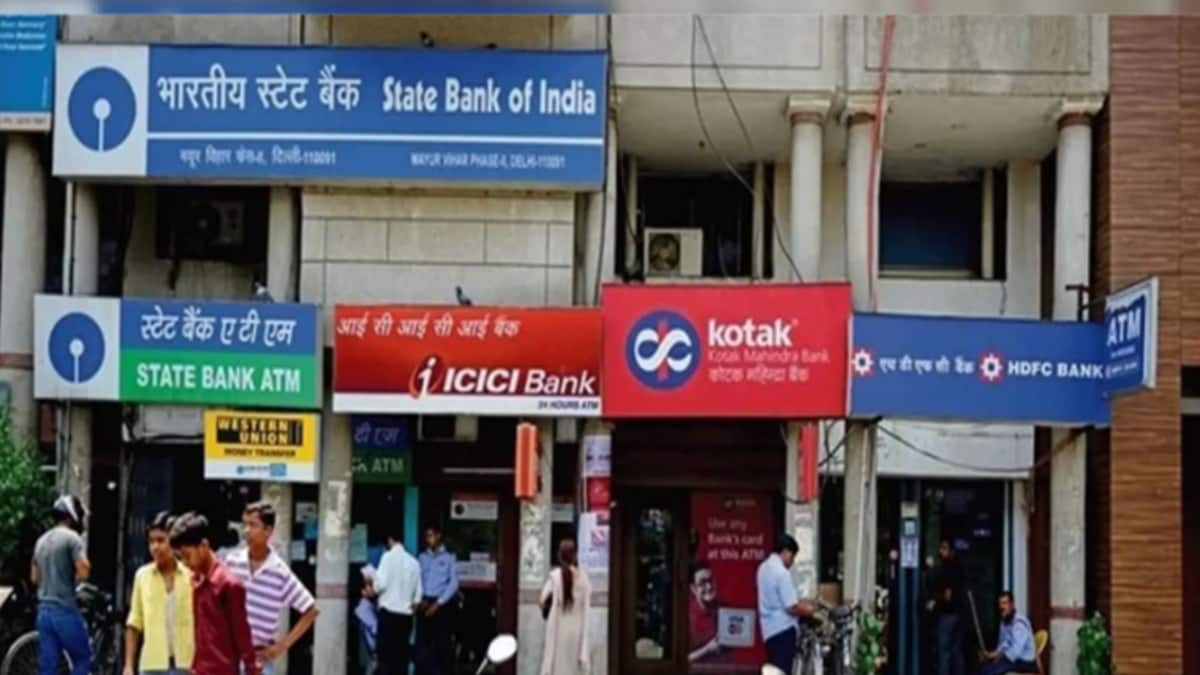Stop Feeling Confused At The Bank: Learn These Must-Know Banking Terms Now

Banks also offer various types of loans, such as personal loans, home loans, and business loans, at competitive interest rates. (Representative image)
Banking services involves several terms which are technical in nature and difficult for a new customer to understand.
Banking services are used by people for a variety of reasons. One of the primary reasons is convenience. Banks offer a range of services such as online banking, mobile banking, and ATM services that make it easy for customers to manage their money.
Another reason people use banking services is for safety and security. Banks offer a safe and secure place to keep money. The money deposited in a bank is insured by the government up to a certain amount, which means that in case of any loss or theft, the customer will be reimbursed for their losses. This provides customers with peace of mind knowing that their money is safe and protected.
Banks also offer various types of loans, such as personal loans, home loans, and business loans, at competitive interest rates. Customers who need money for a specific purpose can borrow from the bank and repay the loan over time. This is especially useful for people who do not have access to other sources of credit.
However, banking services involves several terms which are technical in nature and difficult for a new customer to understand. Familiarity with some basic terminology of a bank helps customers to navigate their work easily which results in saving their time and enhancing the experience.
Here are some key banking terms that you should know to have a seamless experience with your bank:
- Account holder: A person or entity that holds a bank account.
- Savings and Current Accounts: A savings account is a type of bank account that is primarily used for personal savings. A current account is primarily used for business or commercial transactions.
- Account statement: A summary of all transactions carried out in a bank account over a certain period of time.
- ATM: Automated Teller Machine is a machine that allows you to withdraw or deposit money from your bank account using a debit card.
- Cheque: A written order by the account holder to pay a specific amount of money to a person or entity.
- Credit score: A numerical representation of a person’s creditworthiness, based on their credit history.
- Debit card: A plastic card that allows the account holder to withdraw cash or make purchases directly from their bank account.
- EMI: Equated Monthly Installment is a fixed payment made by the borrower to the lender at a specified date each month.
- Fixed deposit: A type of investment offered by banks where the account holder deposits a fixed amount of money for a fixed period of time, and earns interest on it.
- IFSC code: Indian Financial System Code is a unique 11-digit code used to identify bank branches in India for electronic fund transfers.
- KYC: Know Your Customer is a process of verifying the identity of a customer, to prevent fraud and money laundering.
- NEFT: National Electronic Funds Transfer is a system that allows the transfer of funds from one bank account to another.
- Net banking/Internet banking: Online banking service that allows account holders to carry out various banking transactions from anywhere, using their computer or mobile phone.
- PAN: Permanent Account Number is a unique 10-digit alphanumeric code issued by the Income Tax Department to identify taxpayers.
- RTGS: Real Time Gross Settlement is a system that allows real-time transfer of funds from one bank account to another.
- UPI: Unified Payments Interface is a mobile application that allows instant money transfers between bank accounts.
- Overdraft: A facility offered by banks where the account holder can withdraw more money than what is available in their account, up to a pre-approved limit.
- SMS banking: A service offered by banks that allows account holders to carry out banking transactions through text messages sent from their registered mobile number.
- Sweep-in account: A type of savings account where any excess funds in the account are automatically transferred to a fixed deposit account, earning a higher interest rate.
- Demat account: A type of account used to hold and manage electronic securities such as stocks, bonds, and mutual funds.
- ECS: Electronic Clearing Service is a system that allows for automatic and regular transfer of funds from one bank account to another.
- Standing instruction: A set of instructions given by the account holder to the bank to carry out a specific transaction or series of transactions automatically, without requiring manual intervention.
- MCLR: Marginal Cost of Funds-based Lending Rate is a benchmark interest rate used by banks to determine the interest rate for loans and advances.
- Mobile Banking: Banks also offer mobile banking services that allow customers to perform banking transactions on their mobile devices, such as smartphones and tablets.
Read all the Latest Business News, Tax News and Stock Market Updates here
For all the latest business News Click Here


